The Board of Aldermen passed two bills on October 7 to establish campaign contribution limits and clarify gift reporting. Board Bill 53 limits campaign contributions in city elections to $10,000 per election cycle. Violations could result in 90 days of […]
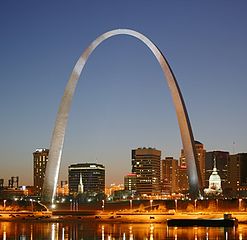 The Board of Aldermen passed two bills on October 7 to establish campaign contribution limits and clarify gift reporting.
The Board of Aldermen passed two bills on October 7 to establish campaign contribution limits and clarify gift reporting.
Board Bill 53 limits campaign contributions in city elections to $10,000 per election cycle. Violations could result in 90 days of jail and a $500 fine. If signed by Mayor Francis Slay, the bill would be effective April 6, 2017, just after the spring mayoral election.
Board Bill 126 requires elected officials to report gifts and travel expenses valued at $375 or more when given by interested persons. Violating the reporting requirement would result in docked pay. Currently, the code requires reporting of gifts exceeding $250, but it is not clear whether public officials are reporting gifts as required.
Photo of the Gateway Arch in St. Louis by Daniel Schwen in Wikimedia Commons.
January 13, 2016 •
Campaign Finance Changes Recommended in Oregon
A task force on campaign finance reform has recommended changes to the Oregon Constitution which would allow limits to be placed on political contributions. The task force urged the Legislature to make the changes by approving a constitutional amendment allowing […]
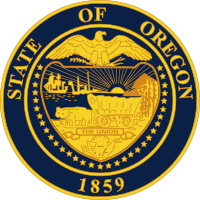 A task force on campaign finance reform has recommended changes to the Oregon Constitution which would allow limits to be placed on political contributions. The task force urged the Legislature to make the changes by approving a constitutional amendment allowing limits to be enacted by either the Legislature or a ballot measure.
A task force on campaign finance reform has recommended changes to the Oregon Constitution which would allow limits to be placed on political contributions. The task force urged the Legislature to make the changes by approving a constitutional amendment allowing limits to be enacted by either the Legislature or a ballot measure.
Currently, Oregon is one of only six states with no campaign spending limits. The Legislature will consider the recommendation at the beginning of this year’s legislative session, which kicks off on February 1.
January 12, 2016 •
Philadelphia Ethics Board Announces New Contribution Limits
The city Ethics Board released new contribution limits for city candidates on January 11. Candidates for city offices may accept up to $3,000 in a calendar year from an individual contributor, an increase from the previous limit of $2,900. Groups […]
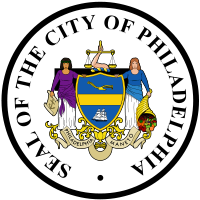 The city Ethics Board released new contribution limits for city candidates on January 11.
The city Ethics Board released new contribution limits for city candidates on January 11.
Candidates for city offices may accept up to $3,000 in a calendar year from an individual contributor, an increase from the previous limit of $2,900. Groups and businesses may contribute up to $11,900 to a candidate per year, an increase of $400.
Contribution limits are adjusted every four years based on the consumer price index.
May 27, 2015 •
Montana Contribution Limits to Be Tested Again
On May 26, the U.S. Court of Appeals for the Ninth Circuit reversed a lower court’s ruling in Lair v. Bullock. The lower court concluded Montana’s political contribution limits were unconstitutionally low. The appellate court found the lower district court […]
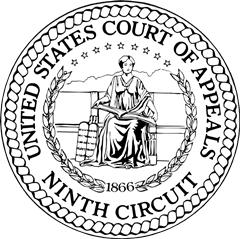 On May 26, the U.S. Court of Appeals for the Ninth Circuit reversed a lower court’s ruling in Lair v. Bullock. The lower court concluded Montana’s political contribution limits were unconstitutionally low. The appellate court found the lower district court applied the wrong legal standard prior to permanently enjoining the enforcement of Montana’s restrictions on campaign contributions by individuals, political action committees, and political parties.
On May 26, the U.S. Court of Appeals for the Ninth Circuit reversed a lower court’s ruling in Lair v. Bullock. The lower court concluded Montana’s political contribution limits were unconstitutionally low. The appellate court found the lower district court applied the wrong legal standard prior to permanently enjoining the enforcement of Montana’s restrictions on campaign contributions by individuals, political action committees, and political parties.
The case was remanded back to the district court to allow Montana’s political contribution limits to be tested under the new and more restrictive standard of Citizens United v. FEC. This new standard, the court stated, means, “The prevention of quid pro quo corruption, or its appearance, is the only sufficiently important state interest to justify limits on campaign contributions. Before Citizens United, it was enough to show the state’s interest was simply to prevent the influence contributors of large sums have on politicians, or the appearance of such influence. No longer so.”
Commissioner of Political Practices Jonathon Motl said he was confident the limits will be sustained, according to the Missoulian.
November 17, 2014 •
Akron City Council to Consider Raising Campaign Contribution Limits
The Akron City Council is considering legislation to increase campaign finance limits for mayoral and council candidates. Limits for mayor and at-large council candidates would increase to $750 and the limit for ward council candidates would increase to $500. The […]
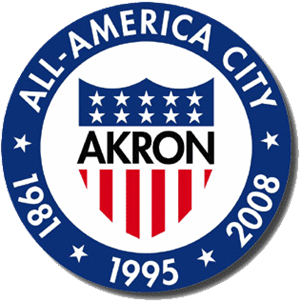 The Akron City Council is considering legislation to increase campaign finance limits for mayoral and council candidates. Limits for mayor and at-large council candidates would increase to $750 and the limit for ward council candidates would increase to $500.
The Akron City Council is considering legislation to increase campaign finance limits for mayoral and council candidates. Limits for mayor and at-large council candidates would increase to $750 and the limit for ward council candidates would increase to $500.
The council is waiting to take action on the legislation until after public hearings have been held. Hearings will take place at the Rules Committee meeting and at the regular council meeting later today.
The 10 ward council seats, the three at-large council seats, and the mayoral seat will all be on the 2015 election ballot.
On Wednesday, July 2, a federal appeals court affirmed the judgment of a district court; independent expenditure committees can lose the right to make unlimited expenditures in certain circumstances. In Vermont Right to Life v. Sorrell , the U.S. Court […]
On Wednesday, July 2, a federal appeals court affirmed the judgment of a district court; independent expenditure committees can lose the right to make unlimited expenditures in certain circumstances.
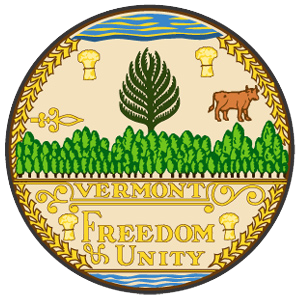 In Vermont Right to Life v. Sorrell , the U.S. Court of Appeals for the 2nd Circuit ruled a state-level super PAC was not functionally distinct enough from a sister committee actively contributing to candidates and parties. Whether a group is functionally distinct from a non-independent-expenditure-only entity depends on factors including, but not limited to, the overlap of staff and resources, the lack of financial independence, the coordination of activities, and the flow of information between the entities.
In Vermont Right to Life v. Sorrell , the U.S. Court of Appeals for the 2nd Circuit ruled a state-level super PAC was not functionally distinct enough from a sister committee actively contributing to candidates and parties. Whether a group is functionally distinct from a non-independent-expenditure-only entity depends on factors including, but not limited to, the overlap of staff and resources, the lack of financial independence, the coordination of activities, and the flow of information between the entities.
Creating two committees and managing two separate bank accounts is not sufficient to prove the committees’ funds are actually treated as separate. To alleviate the danger of quid pro quo corruption, contribution limits may apply to super PACs when they are not functionally distinguishable from committees directly contributing or coordinating expenditures with campaigns.
July 2, 2014 •
Arkansas Adjourns Special Session
Lawmakers ended a special session shortly after midnight on Wednesday, July 2, 2014. The House and Senate gave approval to a package of bills regarding teacher health insurance premiums, prison overcrowding, and limits on lottery monitor games. Photo of Arkansas […]
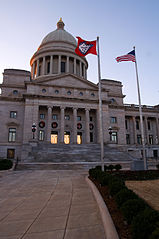 Lawmakers ended a special session shortly after midnight on Wednesday, July 2, 2014. The House and Senate gave approval to a package of bills regarding teacher health insurance premiums, prison overcrowding, and limits on lottery monitor games.
Lawmakers ended a special session shortly after midnight on Wednesday, July 2, 2014. The House and Senate gave approval to a package of bills regarding teacher health insurance premiums, prison overcrowding, and limits on lottery monitor games.
Photo of Arkansas State Capitol Building by Stuart Seeger on Wikimedia Commons.
December 23, 2013 •
Oklahoma Ethics Commission Passes Series of Campaign Finance Rule Changes
The Oklahoma Ethics Commission recently passed a series of rule changes pertaining to political contribution limits. Under the new rules, the dollar restrictions on contributions to state candidates would change from family limits to individual limits. Each person would be […]
 The Oklahoma Ethics Commission recently passed a series of rule changes pertaining to political contribution limits. Under the new rules, the dollar restrictions on contributions to state candidates would change from family limits to individual limits.
The Oklahoma Ethics Commission recently passed a series of rule changes pertaining to political contribution limits. Under the new rules, the dollar restrictions on contributions to state candidates would change from family limits to individual limits.
Each person would be allowed to give up to $2,600 to a candidate per election. The old rules prohibit families from donating more than $5,000 to a candidate in a political campaign.
Lee Slater, executive director of the Oklahoma Ethics Commission, believes the family contribution limit to be unconstitutional as it discriminates against a married person. The new rules, also changing individual contribution limits to political parties and PACs, will go into effect unless they are rejected, in whole, by the Legislature.
January 4, 2013 •
Illinois Increases Contribution Limits
Increase occurs every two years
 The Illinois State Board of Elections has announced that campaign contributions limits have been increased with the start of the new year. According to statute, on January 1 of every odd-numbered year, the board of elections must adjust the contribution limits due to inflation.
The Illinois State Board of Elections has announced that campaign contributions limits have been increased with the start of the new year. According to statute, on January 1 of every odd-numbered year, the board of elections must adjust the contribution limits due to inflation.
Under the updated limits, a candidate political committee may accept, over the course of an election cycle, no more than $5,300 from an individual, $10,500 form a corporation, labor organization, or association, and $52,600 from a political action committee. A political party committee and a political action committee may accept no more than $10,500 from an individual, $21,100 from a corporation, labor organization, or association, and $52,600 from a political action committee.
Absent any legislation, these contribution limits will remain in place until January 1, 2015 and will be in effect for the next gubernatorial election.
State and Federal Communications, Inc. provides research and consulting services for government relations professionals on lobbying laws, procurement lobbying laws, political contribution laws in the United States and Canada. Learn more by visiting stateandfed.com.


